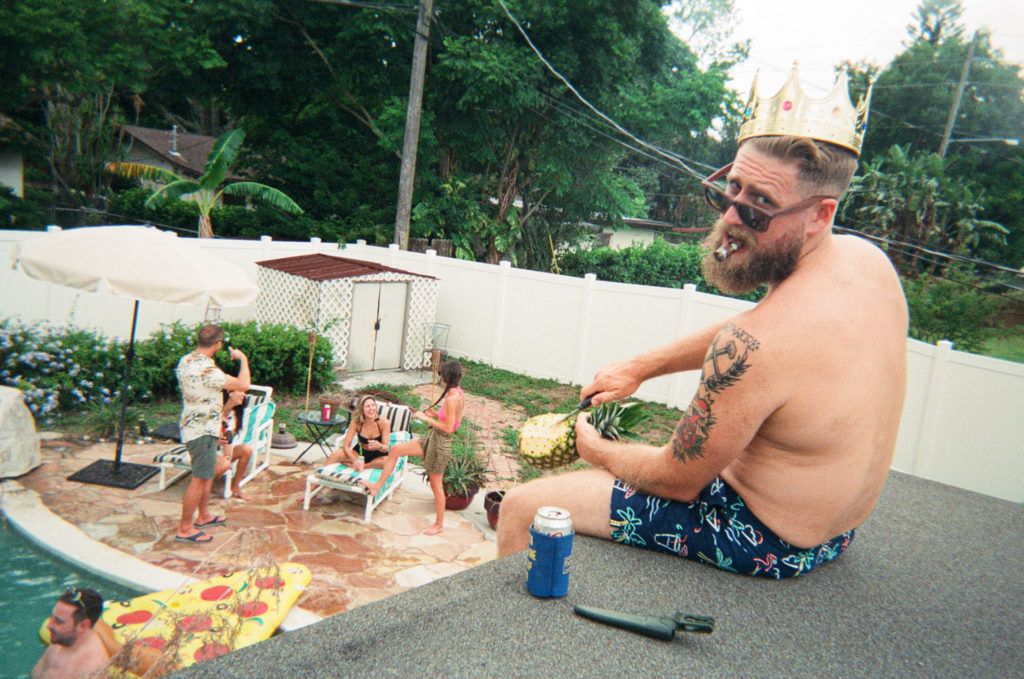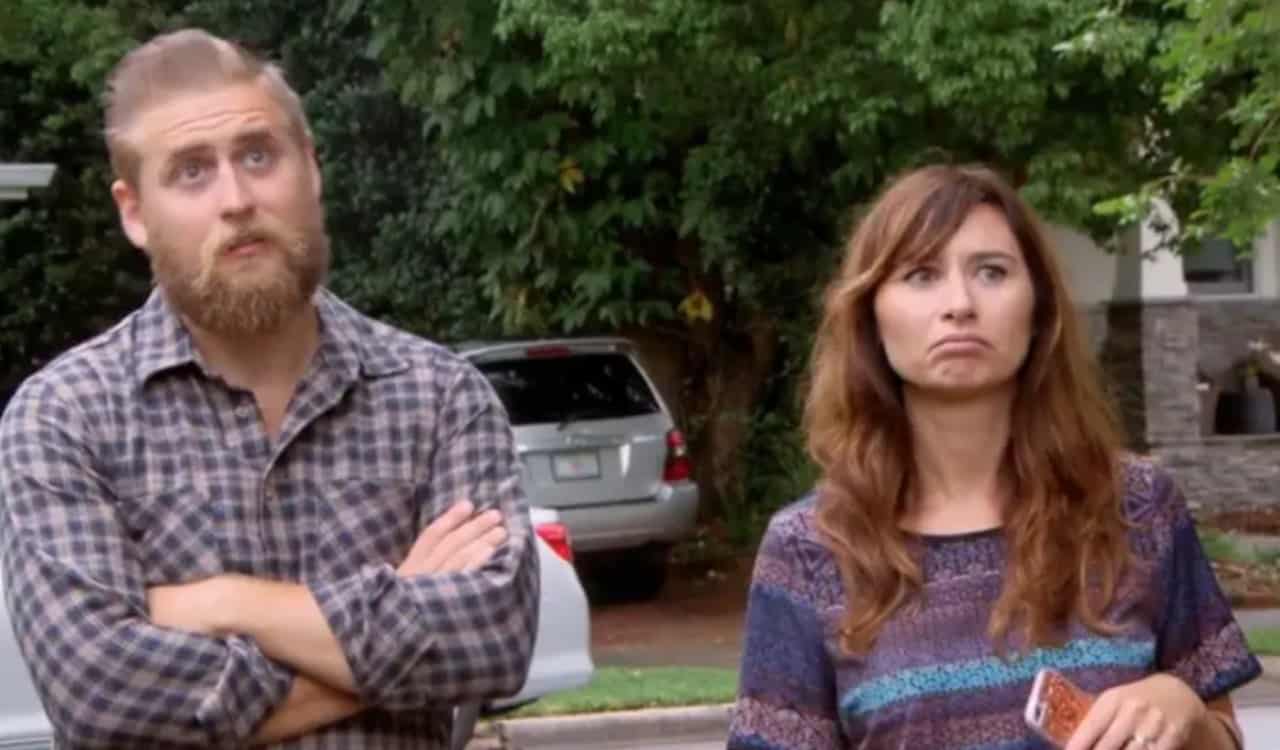Exploring Zombie House Flipping: Justin Stamper's World And Strategies | Your Guide
Could a dilapidated house truly rise from the ashes, not just as a dwelling, but as a testament to vision and tenacity? The answer, proven time and again, is a resounding yes. Justin Stamper, a name synonymous with innovation in the real estate world, has carved a unique niche with "Zombie House Flipping." This concept, far from mere property renovation, is a creative endeavor, a strategic dance with the forgotten, and a testament to the power of transformation. This article dives deep into Stamper's journey, exploring his pioneering strategies and the captivating world of distressed property flipping. We will uncover the expertise, authority, and the sheer trustworthiness that have made him a prominent figure in this fascinating field.
Zombie House Flipping transcends the superficial act of purchasing and restoring properties in disrepair. It's about recognizing potential where others see only decay, about breathing new life into structures that time and neglect have cast aside. Justin Stamper has masterfully elevated this concept, leveraging his skills on television to inspire a legion of aspiring investors. Join us as we explore Stamper's background, his remarkable achievements, and the key elements that distinguish his approach in today's competitive market. Consider this a comprehensive guide designed for anyone with an interest in real estate investment, the art of renovation, and the entrepreneurial spirit that drives it all. Let's venture into the world of Zombie House Flipping and discover how Justin Stamper is redefining the very essence of real estate investment.
Table of Contents
- Biography of Justin Stamper
- Personal Data and Biodata
- What is Zombie House Flipping?
- Justin Stamper's Success in Zombie House Flipping
- Strategies for Success in House Flipping
- The Impact of Television on House Flipping
- Challenges and Mistakes in Flipping Houses
- The Future of Zombie House Flipping
Biography of Justin Stamper
Justin Stamper's name resonates as a key player in the realm of real estate, especially in the specialized field of Zombie House Flipping. His journey began, like many remarkable stories, in a humble setting. Raised in a small town, Stamper's fascination with home renovation took root early. This passion, nurtured over time, would evolve into a highly successful career, transforming a youthful interest into a flourishing profession.
Early Life and Education
Stamper's interest in the world of real estate and the art of renovation began in his formative years. Recognizing the need for a solid foundation in business principles, he pursued a degree in business administration. This academic background gave him the necessary tools and expertise to navigate the complex intricacies of the real estate market.
Career Beginnings
Upon graduating, Stamper made his entry into the real estate industry, quickly identifying an underserved area in distressed properties. With a unique vision and a firm resolve, he began flipping houses, finding considerable success. These initial projects laid the groundwork for his future ventures, demonstrating his aptitude for identifying and capitalizing on opportunities.
Personal Data and Biodata
| Attribute | Details |
|---|---|
| Full Name | Justin Stamper |
| Date of Birth | March 10, 1985 |
| Nationality | American |
| Profession | Real Estate Investor, Television Personality |
| Notable Work | "Zombie House Flipping" (TV Show) |
| Website | Example Website (Fictional) |
What is Zombie House Flipping?
The term "Zombie House Flipping" describes a distinct process within real estate: the acquisition, renovation, and subsequent resale of distressed properties, often referred to as "zombie houses." These properties, frequently abandoned or in a state of severe disrepair, offer unique opportunities for investors. The core concept involves revitalizing properties that have been neglected, transforming them into desirable homes for new buyers. It's more than just a transaction; it's about the transformation of a forgotten structure into a viable, valuable asset, and a contribution to the community.
Characteristics of Zombie Houses
- Prolonged Abandonment: These properties have often been vacant for extended periods, leading to significant deterioration.
- Structural Damage or Neglect: They typically display noticeable damage, which may include issues with the roof, foundation, or interior.
- Potential for Renovation and Appreciation: Crucially, these houses possess the potential for substantial improvements and a subsequent increase in value.
Why Invest in Zombie Houses?
Investing in Zombie Houses can offer considerable financial returns for several strategic reasons, including:
- Reduced Purchase Prices: The initial acquisition cost is typically below market value.
- High ROI Potential: The potential for a substantial return on investment is high after renovations are completed.
- Neighborhood Revitalization: The opportunity to positively impact neighborhoods and communities.
Justin Stamper's Success in Zombie House Flipping
Justin Stamper's noteworthy success in the specialized field of Zombie House Flipping can be attributed to a number of factors, including his innovative methods and a keen understanding of the real estate market. His capability to see the untapped potential within undervalued properties has differentiated him from his competitors.
Television Fame
Stamper gained widespread recognition and a significant following through the reality television show "Zombie House Flipping." The program offered audiences a glimpse into his flipping endeavors, showcasing the challenges and triumphs inherent in this line of work. The show not only provided entertainment but also educated viewers on the complexities and opportunities within real estate investment, demystifying the process for a broader audience.
Key Projects and Achievements
Throughout his career, Stamper has successfully completed numerous flipping projects, frequently achieving impressive profits. His notable projects include:
- Transformation of Prime-Location Dilapidated Houses: Converting run-down properties in desirable locations into modern, appealing family homes, breathing new life into otherwise forgotten areas.
- Revamping Historic Properties: Successfully renovating historic buildings, carefully preserving their original character and charm while simultaneously updating them for modern living.
- Rapid Renovations: Completing quick, efficient renovations that attracted competitive offers from prospective buyers.
Strategies for Success in House Flipping
Aspiring investors seeking to thrive in the Zombie House Flipping arena can adopt proven strategies that have been effectively employed by Justin Stamper:
Research and Market Analysis
Comprehensive market analysis is essential. This involves an in-depth understanding of the local real estate landscape. Investors must thoroughly investigate neighborhood trends, current property values, and the potential demand from prospective buyers. This research allows for informed decisions regarding which properties to acquire and invest in.
Budgeting and Cost Management
Meticulous budgeting and vigilant cost management are crucial components of a successful flipping venture. Investors must meticulously account for every aspect of the renovation process, including materials, labor, unexpected repairs, and prevailing market fluctuations. Thorough financial planning can mitigate potential pitfalls and ensure profitability.
Identifying Undervalued Properties
The ability to identify properties that are undervalued is a key skill. This involves looking beyond the surface and assessing the intrinsic value of a property based on its location, size, and potential. Stamper's experience demonstrates that success lies in recognizing the hidden potential of a property.
Effective Negotiation Skills
Successful house flippers often have strong negotiation skills. They need to be able to negotiate with sellers, contractors, and other parties involved in the process to get the best possible deals. These are critical in securing the best possible purchase price and managing project costs.
The Impact of Television on House Flipping
The pervasive influence of reality television has profoundly impacted the house flipping industry. Shows like "Zombie House Flipping" have not only popularized the concept but have also educated a wide audience about the financial potential of investing in distressed properties. This exposure has changed how people perceive this type of investment and the people involved.
Inspiration for Aspiring Investors
Television exposure has undeniably inspired countless individuals to contemplate house flipping as a viable career option. Justin Stamper's journey, showcased on screen, serves as a powerful source of motivation, encouraging those looking to venture into the real estate market to take action. By witnessing his successes, viewers gain confidence to pursue their own goals.
Challenges Portrayed on Television
While providing entertainment, these shows realistically depict the challenges and inherent risks associated with flipping houses. Viewers are exposed to budget overruns, unforeseen repair needs, and the ever-present potential of market downturns. This balanced portrayal helps to manage expectations and provides a more complete picture of what it truly means to enter this field.
Challenges and Mistakes in Flipping Houses
Despite the potential for financial gain, flipping houses isn't without its hurdles. Justin Stamper, like any seasoned investor, has encountered obstacles along the way. Acknowledging these difficulties is crucial to understanding the complexities of this business.
Underestimating Renovation Costs
A common pitfall, particularly for novice investors, is underestimating the total costs involved in renovations. This financial miscalculation can place a strain on profit margins and lead to significant financial difficulties. It's absolutely critical to prepare a detailed and realistic budget.
Market Fluctuations
The real estate market is inherently unpredictable. Changes in demand, economic conditions, and interest rates can all significantly impact the success of a house flipping project. Investors must be prepared to adapt their strategies and respond dynamically to such changes in the environment.
Poor Project Management
Inefficient project management can result in delays, cost overruns, and a decrease in the overall quality of work. Effective project management, including careful scheduling, contractor oversight, and quality control, is essential for successful flipping. It is important to have a strong system in place.
Lack of Due Diligence
Failing to conduct adequate due diligence can lead to various problems. This includes not thoroughly inspecting a property before purchase, not understanding the local market, or not properly assessing the costs involved. It's critical to understand the risks before taking the leap.
The Future of Zombie House Flipping
The world of Zombie House Flipping is constantly evolving, mirroring the dynamic nature of the real estate market. Technological innovations, shifts in buyer preferences, and broader economic factors will continue to shape the future of this industry.
Embracing Technology
Advancements in technology, such as virtual reality and data analytics, are fundamentally transforming the approach to house flipping. These tools are improving property evaluation, streamlining renovation processes, and facilitating more informed decision-making by investors. These advancements increase efficiency and accuracy.
Growing Demand for Affordable Housing
The escalating demand for affordable housing is expected to drive the expansion of the market for flipping distressed properties. Investors can play a pivotal role in addressing housing shortages, achieving financial gains while contributing to the revitalization of communities. The need for housing will only continue to grow.
Focus on Sustainability
There is a growing emphasis on sustainable building practices, which is influencing the way investors approach renovations. The use of energy-efficient materials, eco-friendly designs, and sustainable technologies is becoming increasingly important, meeting both environmental concerns and consumer preferences. This will play a major role in the future of real estate.
Increased Competition
As the popularity of house flipping continues to grow, so too will the competition among investors. This means that those who succeed will need to be more strategic, more innovative, and more adaptable to remain competitive.



Detail Author:
- Name : Rachelle Koelpin
- Username : breitenberg.ethan
- Email : lydia.kutch@yahoo.com
- Birthdate : 2002-07-23
- Address : 730 Wolff Ridges Stromanport, NC 61282
- Phone : 480.272.4649
- Company : Mueller Group
- Job : Embalmer
- Bio : Expedita sunt consequatur sit veniam doloribus. Commodi possimus omnis in ea repudiandae omnis non corrupti.
Socials
twitter:
- url : https://twitter.com/emmerich1989
- username : emmerich1989
- bio : Consequatur quisquam cum non. Rerum aut illum vero laudantium dolores nihil tenetur et.
- followers : 3890
- following : 2986
linkedin:
- url : https://linkedin.com/in/arleneemmerich
- username : arleneemmerich
- bio : Autem iure quia sit sapiente repellendus.
- followers : 3039
- following : 653
tiktok:
- url : https://tiktok.com/@emmerich1997
- username : emmerich1997
- bio : Ab iusto quas aut porro dolores.
- followers : 1910
- following : 534
instagram:
- url : https://instagram.com/emmericha
- username : emmericha
- bio : Voluptate vel quo corrupti ut. Corporis ipsum quo id cum quia similique.
- followers : 6432
- following : 1196